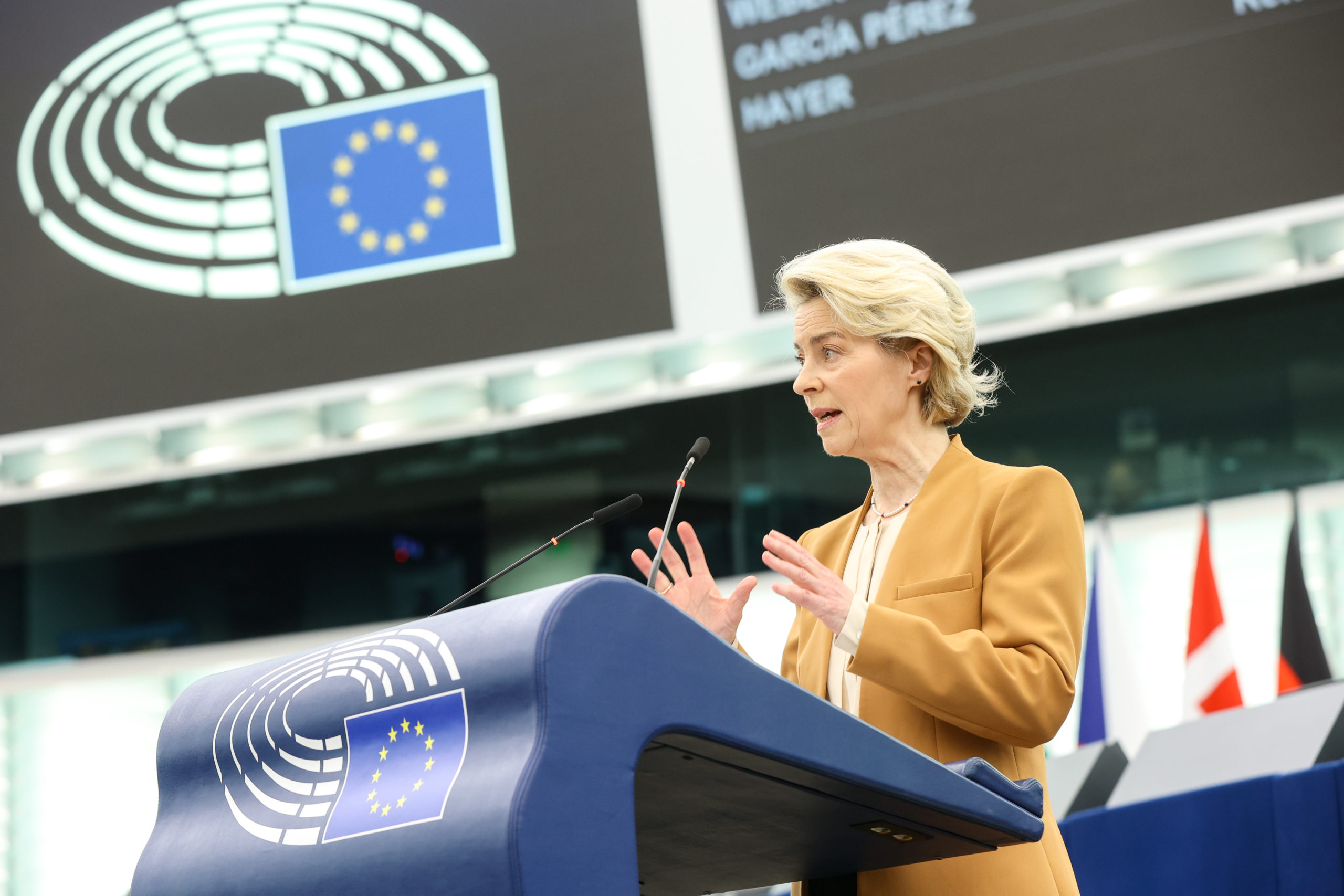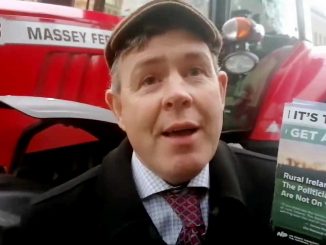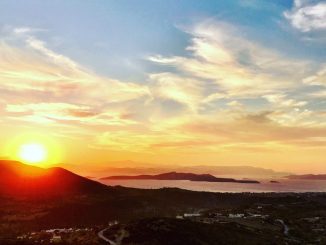
In the aftermath of the European Parliamentary Elections 2024, Oliver Moore assesses what happened and what might happen next, with a farming, food and rural lens.
There are times when a range of things come together. When forces, fears, and finances coalesce. When tendencies and trends gather momentum, when brutal realities land.
A cursory glance at the make-up of the next European Parliament shows change, but not seismically so. It sees Conservatives (EPP) stronger, Greens and Liberals (Renew) down, far right (ID) up.
But it’s in the details where things get more worrisome. The centre-right has shifted further right in recent months, and works with the far-right on many files these days – as we saw with the Nature Restoration law.
The non-aligned group has a significant far-right component. And, while Scandinavian countries went largely green and left, with Socialists and Democrats (S&D), Greens and Left MEPs returned alongside Liberals, there are other considerations as we move south.
Germany, France, and Italy – the most populous powerhouses of the EU – have each seen surges of the far right in various guises. The ECR and ID groups’ numbers are bolstered by Italy and France respectively. For Germany, AfD will likely return to ID. In all three, the far right vote is considerable, and it is growing.
Moreover, divisions in places like Belgium, Austria and Germany are being exasperated by ever-more regionalised voting. Keep up to date here with the results.

Which way for the Commission and the Parliament?
In the Parliament itself, the centre right (EPP) has a big decision to make – ally with the far-right and pull away from socially and environmentally progressive policies, or try to do something like a better supported green transition by reaching access to liberal left and green forces. Von Der Leyen in particular will have a decision to make in this regard. Will she work with the S&D, Renew and Green, or will she look the other way, towards ECR and ID?
Perhaps more importantly, will one of these two sides form a coherent package and make demands? Will the woo-ing work?
The signs are not good – indications are that she is looking right towards Meloni’s Brothers of Italy in ECR, and is hoping to bring the rest along this path. But there are huge credibility considerations with dalliance with the far right, for the EU, for supposedly centrist parties, and for democracy.
For groups like the Left and the Greens, there are also reputational risk in working with the centre – the centre is business a-as-usual, and this is what has been rejected by an increasing number of the electorate. The centre, and centre-right especially, is blind to the scale of change required. A tamer transition is not what either Green or Left groupings have in their worldviews. But there are wide and big issues at stake – from an intensified legislative rollback to the EU itself and democracy itself – which tend to focus and chasten minds.
One thing seems clear: it is no longer the liberals (Renew) holding power as a broker: with the rightward shift, it’s all about the centre right’s focus now.
We will bring you more detailed analysis in the coming days of the machinations at Parliament and committee level, as it emerges.

What we need, what we get.
Instead of the emerging Fortress Europe, anti-science regression and rising ethno-nationalism we need a Europe of solidarity and compassion. Despite the difficulties, this is not only possible, it’s necessary.
We need to face up to reality. The Green Deal as it was is over. It was a hopelessly inadequate neo-liberal band aid on huge open wounds. In many cases – and also due to opportunistic spin from the centre-right – it has alienated rather than united.
Real, deep, structural and progressive investment would help with a transition people can trust. No more half measures. We need to build towards the next Multiannual Financial Framework (MFF) in 2027 as if the EU itself depended upon it. Beyond the limits of neoliberalism, real investment in critical infrastructure must come to cope with extreme weather and environmental collapse in a fractious world. And this this critical infrastructure must lean towards agroecology and not towards further corporate control, consolidation, land squeeze and alienation.
The problem is we need cool heads, wide understanding and something of a future-orientation that understands the gravity of the reality we’re in – from a number of interrelated perspectives. We need MEPs who can face up to what science says and what society needs – both of them. Denialism and retraction isn’t a solution anywhere.
This looks increasingly difficult to achieve, based on the make-up and directionality of the Parliament. However the surge in votes for ethno-nationalist, socially regressive, science-denying policies of myopic protectionism is too big to ignore. Some member states, including France, Italy and Germany, are playing with a fire many thought extinguished in the middle of the 20th Century.
These trends lead to more and more division and more barriers – externally and internally. Where will it end? This is not a game, not a joke. We have history books, and the lessons are both rhyming and repeating. They are dangerously close to being actualised in the “re-migration” policy proposals of the AfD and others.
Both the Strategic Vision (Ministers setting direction for the coming mandate) and Strategic Dialogue (supposedly farmer focused multi-stakeholderism to rubber stamp bad decisions) are chimeras to avoid action.
We need the science, the structures and the supports to align simultaneously. We need to centre people and their real needs – now. No more short-cuts. Many people feel more and more alienated, pessimistic, untrusting, and disassociated from politics – politics seems to be more and more about concepts and less about having enough to live reasonably well. (see images below)
Young voters who may have looked to Greta and the greens in 2019 are looking to send their migrant – and even multi-generational migrant – neighbours away to other countries in 2024
We have allowed for the AirB&Bisation of everything that matters – such as housing for all, both newcomers and established residents – for short term convenience and cost saving, leaving our societies with a huge hole of uncertainty in the middle. And we are now somehow suprised at the consequences.
Brexit gave the warnings, but we continue to fail to heed them. While the centre does not have the answers, the far-right has benefitted from the half hearted neo-liberal approach to huge structural issues. So we instead see more fear, denial, anger, exclusion and the avoidance of providing answers of substance.


Farming, Food and the Future of CAP
In farming we see constantly declining numbers in general, a decline in diversified farms, as well as massive borrowings, below cost selling, corporate capture and a basic difficulty in making a living for those who remain working the fields. These core realities shaped the farmers’ protests of recent months.
The solution offered is more of the same, while throwing environmental elements out the window, intensifying corporate capture by stealth (digitalisation, carbon farming and more) and sneaking back in protectionism without thinking of anything other than supporting a failing stasis.
The far right are co-opting terms like food sovereignty, emphasising the loss of small to mid-sized farms, corporate capture, and many other things progressive rural advocates have campaigned for for years – but adding in a toxic, exclusionary, hierarchical, myopic anti-environmental dimensions. This is not a solution to our omni or poly crises. This populism resonates with its simplicity, but so many realities are ignored.
The pool the far-right draws from plays on people’s fears, but also their desires to protect – however wide off the mark this is on the ground. Neoliberalism denudes society of structural support, so a rising far-right is inevitable as people feel left behind. This is one of the reasons why, increasingly, their language chimes with food sovereignty’s protective dimensions.
And this is why the actual food sovereignty movement is also about inclusion and environmental protection, and a wider solidarity with all people – not just a contrived version of “your” or “my” people.
Future-CAP can go down two paths: positivity and transition or fear and ossification. We need to make the case for the former, as the latter will denude the countryside of farmers and nature while promising the sun moon and stars to them.
There are lessons to be learned from different approaches. The bottom up initiatives in Marburg and Plessé for building sustainable agri-food and rural systems shows how it could be.
A Land Use directive and Land Observatories are interesting and useful emerging developments too. Exposing land concentration by corporations on the one hand, while promoting access to land models on the other, us part of the work to bring new entrants into farming, and to potentially bring farmers and consumers together too.
We make the case for an agroecological infrastructure in our book Rural Europe Takes Action, where we cite dozens of examples from all over the Continent. More examples below this article including much content from our Feeding Ourselves 2024 gathering in Cloughjordan.
Breaking Bread with the Messanger
There is a need to find a way to make ‘good life’ successes – for people and places – known and understood. Rob Hopkins spends much of his time these days talking about imagination – about imagining a better future with sufficiency and wellbeing as central. Difficult as it is for people – the known is comfortable, or comforting, even as it declines – he’s still onto something.
We need to better understand why shooting the messenger is somehow the option increasingly chosen by populists against green movements and parties. You could be forgiven for imagining that the environmental movement invented climate change and all the bad vibes and impositions related to it. Ways must be found to develop, understand and explain the positives of an agroecological future, which builds stronger regional infrastructures and centres people and their needs.
There could have been help with a Sustainable Food Systems law and other measures, but that simply did not happen with legislative regression. There are constructive things to build upon in Ireland, in France and Germany, in Cloughjordan, Plessé and Marburg, and we must build up and out from this basis now, with deep listening and understanding at its core.
The future won’t be easy – all the problems the far-right love to ignore will still be intensifying. Droughts and floods, storms and sea surges will hammer the lands while nature disappears. Desperate people fleeing war and other awfulness. Denial and doubling down won’t help anyone.

Where now for politics?
Looking at the make-up of this Parliament, it’s easy to be pessimistic. Sure, unusual things may emerge, occasional ad hoc alliances on a case-by-case basis. But the focus will also be on protecting what we have. A centre-right and progressive alliance is still possible. This in turn could add the underpinnings of support required for targets and transitions. Meanwhile we must keep building something better from the ground up.
Especially now however, the coming together of wider progressive forces needs to happen across Europe. It does happen occasionally, for referenda in specific member states, for example. All sides in a progressive alliance will need to compromise, to take on board the validity of the other’s perspective. It was never going to be easy. It may sound trite at times to say it, but together we are stronger. So I’ll say a version of it in Irish, the language of my island from before colonisation, a language that has still, somehow, survived and is now, once again, starting to thrive.
Ní neart go cur le chéile.
More
Future-Proof Food Systems in Europe – A Call for Action from Marburg
Marburg Gathering | Building Bridges for Future-Proof Food Systems
Mind The Gap! Sustainable Food Systems Need Intergenerational Cooperation
Four Takeaways From our Rural Resilience Gathering in North West France
Ernährungsrat: The democratic potential of Food Policy Councils in Germany
Feeding Ourselves 2023 – Diversified Diversification in Action
Protests and Love – France’s Farmer Organisations, Demonstrations and Social Alliances
The German Farmers’ Association’s Double Game – Shrewd farmer lobbyists
EU Fails to Deliver on Food System Transformation in Face of Environmental Collapse






